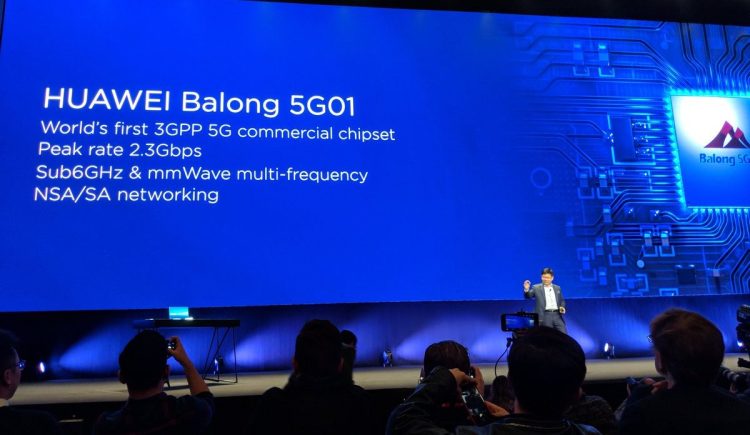With Huawei’s 5G sales growth prospects clouded by increasingly international concerns over network security, rotating chairman Eric Xu today downplayed the next-generation wireless technology at the company’s Analyst Summit in Shenzhen, China, reports the Financial Times. Xu surprised listeners by characterizing 5G as “just one product line at Huawei” and claiming that apart from speed bumps over 4G, the company doesn’t expect consumers will find a “material difference between the two technologies.”
Xu’s comments come as carriers across the United States, South Korea, and China are actively investing in 5G hardware, often calling it the foundation of an impending “fourth industrial revolution.” Beyond radically faster mobile device speeds, 5G is expected to power real-time virtual and augmented reality streaming, autonomous cars, connected cities, and remotely operated factories, to name just a few applications. The next-generation cellular standard promises to dramatically improve data security, reliability, and responsiveness over current levels.
However, Xu sought to claim that 5G wasn’t necessary for those changes. “Even today, we have the technology that can support autonomous driving,” he said, while claiming that operators will struggle to make money from 5G networks. According to other reports from the Summit, Xu suggested that Huawei and carriers would need to have some 5G presence, if only for marketing purposes, since existing 4G networks are already robust and capable. Mobileworldlive noted that analysts at the event found Xu’s comments “especially surprising” given the company’s market position, and a sharp contrast with 5G rivals’ messaging.
Huawei’s reversal of position could hardly be more stark. In recent months, the company has repeatedly trumpeted its 5G engineering successes in an effort to position itself as a natural leader in supplying 5G networking and consumer hardware. Beyond pitching individual carriers and governments across the globe to adopt its gear, Huawei has claimed to be first to market with a commercial 5G modem and offered to supply early standards-compliant 5G network gear at aggressive prices.
June 5th: The AI Audit in NYC
Join us next week in NYC to engage with top executive leaders, delving into strategies for auditing AI models to ensure fairness, optimal performance, and ethical compliance across diverse organizations. Secure your attendance for this exclusive invite-only event.
But the company has been unable to escape from a cloud cast by the U.S. government, which has accused the Chinese-owned company of clandestine ties to China’s government. U.S. officials, including spy chiefs, have actively lobbied inside and outside U.S. borders to prevent Huawei gear from being used in 5G networks, claiming that buying the company’s inexpensive gear places entire countries at risk of Chinese surveillance — and possibly, after 5G connects cities and infrastructure — Chinese control.
Huawei has aggressively denied the claims, though those denials haven’t eased concerns. Amongst other actions, the U.S. has moved to block federal funds from being used to buy Huawei hardware. Meanwhile, rival Ericsson has swooped in to win a claimed 50 percent of 5G contracts around the world.
Still, Huawei expects to launch its first 5G phone around the second half of next year. ComputerWeekly reports that the company is now targeting June 2019 for its launch, while TechRadar reports the phone will arrive between July and September 2019, possibly under the name Huawei Mate 30.

